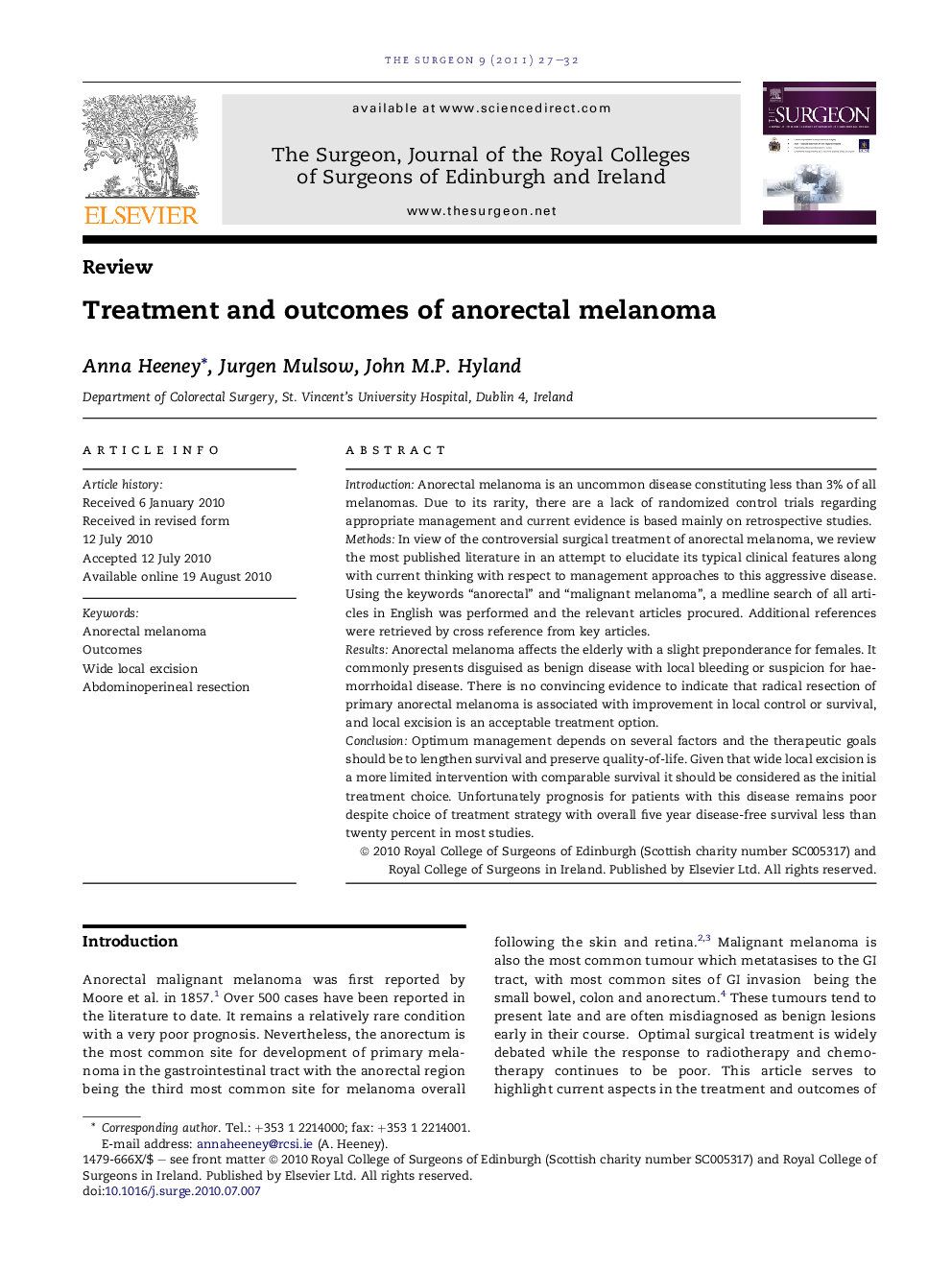| Article ID | Journal | Published Year | Pages | File Type |
|---|---|---|---|---|
| 3178926 | The Surgeon | 2011 | 6 Pages |
IntroductionAnorectal melanoma is an uncommon disease constituting less than 3% of all melanomas. Due to its rarity, there are a lack of randomized control trials regarding appropriate management and current evidence is based mainly on retrospective studies.MethodsIn view of the controversial surgical treatment of anorectal melanoma, we review the most published literature in an attempt to elucidate its typical clinical features along with current thinking with respect to management approaches to this aggressive disease. Using the keywords “anorectal” and “malignant melanoma”, a medline search of all articles in English was performed and the relevant articles procured. Additional references were retrieved by cross reference from key articles.ResultsAnorectal melanoma affects the elderly with a slight preponderance for females. It commonly presents disguised as benign disease with local bleeding or suspicion for haemorrhoidal disease. There is no convincing evidence to indicate that radical resection of primary anorectal melanoma is associated with improvement in local control or survival, and local excision is an acceptable treatment option.ConclusionOptimum management depends on several factors and the therapeutic goals should be to lengthen survival and preserve quality-of-life. Given that wide local excision is a more limited intervention with comparable survival it should be considered as the initial treatment choice. Unfortunately prognosis for patients with this disease remains poor despite choice of treatment strategy with overall five year disease-free survival less than twenty percent in most studies.
